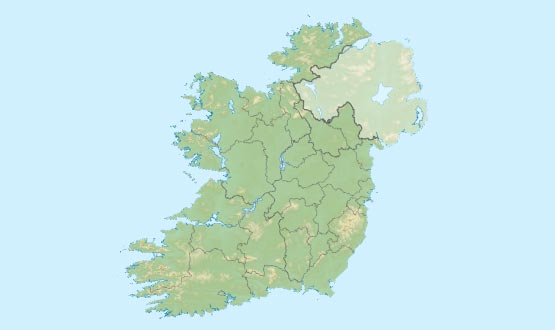Ireland races to implement health IT
- 17 December 2015

Ireland has created an Individual Health Identifier for all patients, and implemented an e-referral system in half of all its hospitals, over the past six months
Digital Health News reported in June this year that Ireland had launched a 'Knowledge and Information Strategy', which focused on getting a new IT infrastructure, interoperable systems, data use, and patient services in place for its health services.
Ireland’s chief information officer for health Richard Corbridge said getting that plan approved and published gave the go-ahead to create eHealth Ireland, taking different IT functions from across the country and moving them into one national function for delivery of healthcare IT.
This means there is a single design authority and technology office and project management office, so “you are getting the best economies of scale”, he explained.
The top priority for the new organisation was the creation of the Individual Health Identifier, which acts like the NHS Number in the UK. This will be used to identify patients throughout the Irish healthcare system and went live in the first week of September.
Corbridge said the team went from almost a standing start to a functioning IHI within about six months.
“We have a series of GP system suppliers, who aren’t the same as the UK, and all have said they will implement the IHI in 2016.”
It will also be added to all referral letters from January next year so it will appear in hospital patient administration systems and discharge letters to GPs.
While the NHS in England has struggled to increase use of the NHS Number, Corbridge said Irish GPs in particular are actively seeking to use it. It will also be implemented as part of Ireland's national patient administration system contract with CSC next summer.
EHealth Ireland’s target is for the IHI to be used on all correspondence from a GP to acute provider and back again by the end of 2016, and more widely across the healthcare system by 2019.
A national e-referral system now also covers half of all hospitals and plans are in place for 100% coverage by March 2015.
Corbridge said Irish GPs are very keen to use the system so when it goes live in a locality it is very quickly picked up.
Ireland is in the final stages of implementing its national PAS contract, agreed with CSC in 2005.
The country effectively has seven ‘NHS trusts’ known as ‘hospital groups’, of which most have deployed CSC's iPM PAS and two are due to move to Lorenzo by January 2017.
EHealth Ireland is about to publish a business case for procuring a full electronic health record for all of Ireland with the target for deployment in 2019.
Corbridge said he learnt, from working on the National Programme for IT in England, the importance of transparency to these types of programmes and so all plans and business cases are published on the eHealth Ireland website.
There has also recently been the award of national contracts for a laboratory system and a maternity system, which both went to Cerner. The first sites for each of these systems will go live early next year.
“At the moment we are not considering that Ireland’s electronic health record is one system, but core data items and core functionality integrated across different areas across Ireland,” said Corbridge. “It’s very much a national programme of funding resources and work.”
While there is a budget to deliver eHealth Ireland, the cost of running the systems will be part of the hospital groups’ budgets.
“Ireland hasn’t particularly invested in health technology over the past ten to 15 years so it’s very basic, or paper and pen processes being replaced. This makes business change somewhat easier than replacing systems already in and, in most cases, people are keen to do it,” he said.
You can ask Corbridge and other senior members of his team questions on Twitter about eHealth Ireland's work on Monday, 21 December between 3-4pm using the hashtag #eHealthhour.




